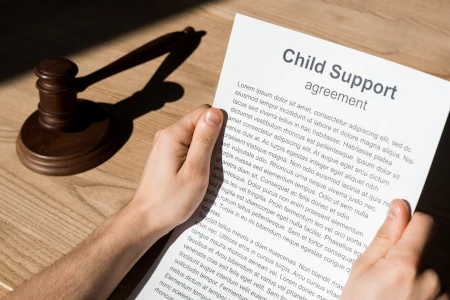Negotiation is an ever-present part of our lives, whether it’s haggling over the price of a car or discussing the terms of a job offer. In most negotiations, the parties involved usually have common interests and work together to find a mutually beneficial solution. However, the dynamics change significantly when it comes to negotiation in legal disputes. In this article, we will explore how negotiation in legal disputes differ from other types of negotiations.
Complementary Interests vs. Adversarial Nature
In typical business negotiations, the parties often have complementary interests. For example, in a real estate transaction, one party wants to sell a property while the other wants to buy it. While there may be some competition over price and terms, both parties ultimately benefit from reaching an agreement and can be seen as partners in the transaction.
In contrast, legal disputes involve parties with adversarial interests. In a lawsuit, both parties believe they are in the right and seek to prove their case while discrediting the other side’s claims. The adversarial nature of legal disputes sets the stage for a fundamentally different type of negotiation.
Reservation Points and BATNA
In any negotiation, parties set reservation points—the limits beyond which they are unwilling to go. This could also be referred to as a “bottom line.” Additionally, negotiators determine their Best Alternative to a Negotiated Agreement (BATNA), as Roger Fisher and William Ury introduced in their book “Getting to Yes.” The BATNA is the fallback option if negotiations fail, and it serves as a standard against which any proposed agreement should be measured.
In business negotiations, parties often have a range of possible outcomes that fall between their reservation points. Ideally, negotiations lead to an agreement that both parties prefer to no agreement at all. However, both parties often share the same BATNA in legal disputes – going to court. If negotiations fail, the dispute will be resolved through litigation, and the court’s decision will become the new benchmark.
Examples of Negotiation in Family Law
Divorce Negotiations
When couples get divorced, they have to deal with dividing up complex things like businesses, stocks, houses, and even assets in other countries. It’s important to talk things out so both people can agree on a fair split that doesn’t lower the value of what they own.
For example, if one person wants to keep the family business, they might need to work out a deal to give the other person different assets or money to make it fair.
Negotiating Custody and Parenting Time
Fighting over who gets the kids can get really heated. The goal is to agree on what’s best for the kids, considering the parents’ busy lives and ability to care for them. Parents might need to talk about who pays for education and travel and set up trust funds for the kids to ensure they keep living a good life after the divorce. Making a plan that fits both parents’ schedules and covers the kids’ financial needs is key.
Spousal Support (Alimony) Negotiations
When discussing spousal support and alimony, or money one spouse pays the other after divorce, it’s all about figuring out a fair amount that considers how much money both people make and the kind of life they are used to. They might agree on one-time payments, giving over parts of investments or property instead of monthly checks, which could save money on taxes and offer more financial security.
Negotiating Property Division
For those with a lot of valuable stuff, deciding who gets what can get complicated. This includes art, fancy cars, vacation homes, and investments. Figuring out the value of unique or changing assets, like cryptocurrencies, needs careful discussion. Lawyers might help make deals for appraisals, buy-outs, or setting up trusts to divide these assets fairly.
The Court as the Standard
In a legal dispute, the court becomes the ultimate standard against which any proposed agreement should be measured. Parties must evaluate whether the current proposal is better or worse than what a court might decide. This can significantly impact the negotiation process.
For example, a party who believes a court will rule strongly in their favor may be less inclined to compromise and may set higher demands. However, litigation comes with its own risks and costs, including time, expenses, and emotional stress. Parties may be willing to accept less or offer more to reach an agreement and avoid the uncertainty and expense of a trial.
The Role of Attorneys
Attorneys play a crucial role in navigating the complexities of negotiation in legal disputes. While no one can predict the court’s decision with absolute certainty, skilled lawyers can provide guidance on the likely outcomes based on their experience and knowledge of legal precedents. They can also offer a more rational, less emotionally charged perspective on the situation.
Furthermore, attorneys can often bring creative solutions to the table that the parties themselves have yet to consider. Their expertise in negotiation strategies can help facilitate productive discussions even in the challenging context of legal disputes.
Tips For Negotiation During Legal Disputes
Navigating the complex and often emotionally charged landscape of legal disputes, particularly in family law, demands a blend of strategic thinking, legal knowledge, and emotional intelligence. Experienced family attorneys Carolyn and Krista have shared their wisdom on approaching negotiations in such disputes. Here are our invaluable tips:
1. Understanding the Law and Court Outcomes
Before entering any negotiation, it’s crucial to understand the legal landscape. Knowing the law and the potential outcome if the matter goes to court can significantly influence your negotiation strategy. This knowledge grounds your requests in legality and helps convey a strong case to the opposing party.
2. Identifying Your Breakpoint
Knowing when to walk away from a negotiation is as important as knowing when to engage. Identify your breakpoint – the juncture where the benefits of continuing negotiations outweigh the potential of going to court. A realistic understanding of probable court outcomes and the associated costs should inform this decision.
3. Reasoning Your Requests
In negotiations, clarity is key. Be prepared to explain the rationale behind your requests. Understanding and articulating the reasons for your demands and acknowledging the other party’s perspective can pave the way for creative and mutually satisfying solutions.
4. Gathering Relevant Information
Preparation is the foundation of effective negotiation. Ensure you have all the relevant information to make informed decisions. This thorough preparation bolsters your negotiation position and aids in realistic assessments and proposals.
5. Setting the Initial Offer
A strategic approach often involves starting with a higher request than what you are willing to accept. This gives you negotiation leverage and room to arrive at a more favorable outcome while making adjustments during the negotiation process.
6. Willingness to Compromise
Understanding that negotiation is a process of give and take is vital. Being open to compromise and recognizing that it’s improbable to have all your demands met can lead to successful negotiation outcomes.
7. Recognizing the Cost of Litigation
Litigation can be an expensive and emotionally taxing journey. Being aware of these aspects can often make settling an attractive option. This awareness helps in weighing the costs against the benefits of continuing negotiations.
8. Managing Expectations Post-Mediation
It’s common for parties to feel a sense of loss post-mediation. Understanding that no one usually leaves completely satisfied can help manage expectations and adopt more pragmatic negotiation strategies.
9. Consulting a Neutral Third Party
Objective insights can be invaluable. Discussing settlement proposals with an uninvolved third party, preferably an attorney, can offer clarity and a different perspective, aiding decision-making.
10. Avoiding Ultimatums
Maintain a cooperative and flexible stance. Avoid making absolute statements like “This is my final offer,” as they can escalate conflicts and impede negotiation progress.
11. Preparing for Mediation
If mediation is part of the process, clear your schedule for the day. Recognizing that mediation can be time-consuming and ensuring your availability without distractions can enhance the effectiveness of the process.
Conclusion
Negotiation in a legal dispute is distinct from other types of negotiations due to its adversarial nature, the shared BATNA of going to court, and the court’s role as the ultimate standard. Attorneys play a vital role in helping parties navigate this unique landscape. While legal disputes may be fraught with tension and uncertainty, effective negotiation can still provide a path to resolution, allowing parties to avoid the costs and complexities of litigation.
Successful negotiation in legal disputes, especially in family law, requires a combination of legal savvy, strategic planning, and emotional intelligence. By adopting these expert tips, parties can navigate these challenging waters with greater confidence and a higher chance of reaching amicable resolutions.

Carolyn Bellof
Carolyn Bellof is a Certified Family Law Specialist in North Carolina. She brings empathy and a personal understanding of loss and resilience to her clients, ensuring their legal needs are protected during emotionally challenging family law proceedings.
Protect Your Assets: Master negotiation with family attorneys to secure fair agreements, avoiding costly litigation. Schedule your consultation now.
















